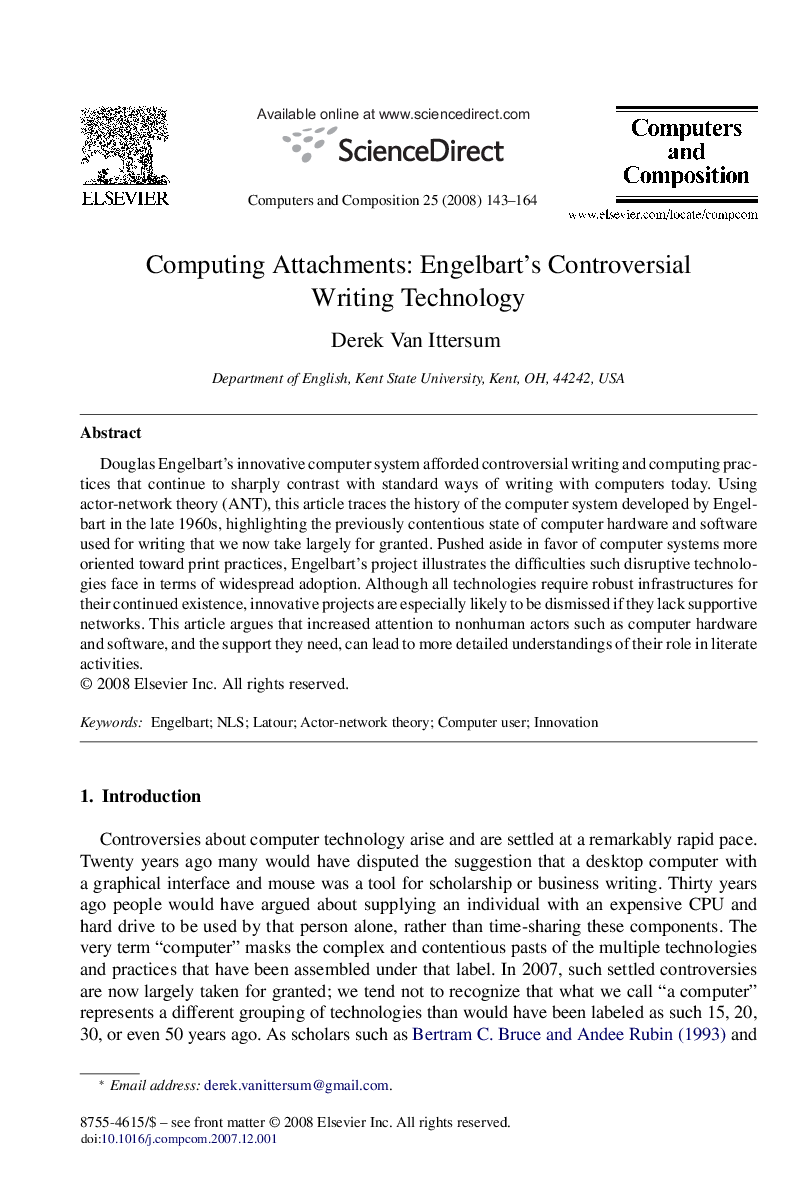| Article ID | Journal | Published Year | Pages | File Type |
|---|---|---|---|---|
| 347831 | Computers and Composition | 2008 | 22 Pages |
Douglas Engelbart's innovative computer system afforded controversial writing and computing practices that continue to sharply contrast with standard ways of writing with computers today. Using actor-network theory (ANT), this article traces the history of the computer system developed by Engelbart in the late 1960s, highlighting the previously contentious state of computer hardware and software used for writing that we now take largely for granted. Pushed aside in favor of computer systems more oriented toward print practices, Engelbart's project illustrates the difficulties such disruptive technologies face in terms of widespread adoption. Although all technologies require robust infrastructures for their continued existence, innovative projects are especially likely to be dismissed if they lack supportive networks. This article argues that increased attention to nonhuman actors such as computer hardware and software, and the support they need, can lead to more detailed understandings of their role in literate activities.
